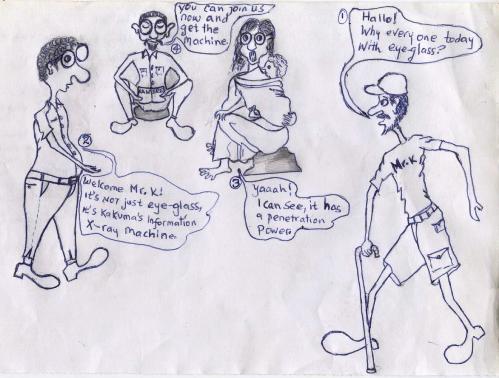
Volume 1, Issue 2 / January 2009
Do we refugees have a right to participate in decision-making that affects our lives? Yes, we do! The rights- and community-based approach of UNHCR guarantees us the right to participate in decision-making and demand our entitlements. This January, KANERE celebrates the one-year anniversary of UNHCR’s publication of a manual intended to support UNHCR staff in implementing the new approach.
The manual, A Community-Based Approach in UNHCR Operations was published in January 2008. It was developed as a result of 2002 evaluations of the community services function of UNHCR, which highlighted “many of the institutional impediments to effective community work” (p. 6).
The rights- and community-based (R&CB) approach to refugee camps seeks to integrate the norms and principles of international human rights into humanitarian policies and programmes. The manual states that UNHCR has made an attitudinal shift in how it works with and for persons of concern. Refugees are no longer viewed as beneficiaries of aid, but as rights-holders with legal entitlements.
We refugees also have a right to information from humanitarian organizations. In a rights- and community-based approach, people of concern not only have the right to participate in making decisions that affect their lives, but they also have a right to information and transparency from UNHCR and partner staff,” reads the manual (2008, p. 5, italics added).
The main idea of the policy is to empower persons of concern to UNHCR (both refugees and asylum-seekers) to be at the core of all UNHCR activities. As refugees and asylum seekers, we are to be involved in all decision-making processes that affect our lives. To quote directly from the UNHCR manual (2008, p. 16, italics added):
One of the most important roles of…organization[s] is to support rights-holders to claim their rights. This requires major shifts in the way many agencies are working. Rather than delivering services and doing advocacy work on behalf of poor and disadvantaged people, a rights-based approach requires organizations to support people to demand what they are entitled to…A rights-based approach demands that agencies work together to support broad processes of change in society.
The R&CB approach emphasizes that UNHCR officials must operate with transparency and accountability to refugees. This includes “the provision of accessible and timely information to stakeholders and the opening up of organizational procedures, structures, and processes to their assessment” (2008, p. 23).
UNHCR now regards persons of concern not as dependent beneficiaries, but as equal partners who have an active role in the overall camp activities. As persons of concern, we have an important role in every stage of the program cycle, from needs assessment to implementation and even programme evaluation.
A community-based approach is a way of working in collaboration with persons of concern during all stages of UNHCR and NGOs’ programme cycle. It realizes the resilience, capacities, skills and resources of refugees. The policy seeks to build on the existing strengths of refugees to deliver protection and solutions to our own goals.
A rights-based approach ensures that refugees have meaningful participation and empowerment to promote change, enabling us to exercise our fundamental rights. Of course, “empowerment” goes two ways—just as UNHCR may “empower” refugees to participate, refugees also empower UNHCR and NGOs to achieve greater understanding of realities in the camp and to respond more effectively to our human rights.
How many of us are ready to exercise our rights?
Sources Cited
Office of the United Nations High Commissioner for Refugees (January 2008). A Community-Based Approach in UNHCR Operations, Published by the author.
